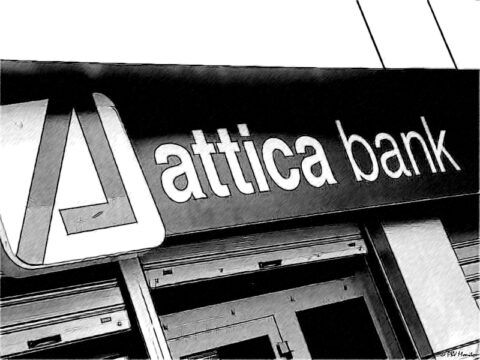Nearly a year has passed since Attica Bank’s first liaison with Cyprus-based investment firm Thrivest, but the relationship between the two entities is still to be formally recognised.
Although complex negotiations have been ongoing since Attica first began searching for investors to recapitalise the bank towards the end of 2022, there is still no end in sight for Thrivest’s attempts to be granted fit and proper status for the deal.
While it is already a significant shareholder in HSBC and Pancreta Bank, Thrivest, which appears to have little capital of its own, continues to create waves in the Greek banking sector.
It recently announced plans to launch a new “super bank”, which would have major implications for both the regional and wider international economy.
In April, Attica revealed that The Hellenic Financial Stability Fund (HFSF), Thrivest and Pancreta Bank had pledged to participate in a share capital increase plan by Attica Bank worth up to 393 million euros as part of a merger deal.
As matters stand today, it is unclear what the major issue might be in consolidating the existing bond between Attica and Thrivest.
Senior sources in Greece have confirmed that Thrivest’s interest has not been approved amid concerns that cannot be easily dismissed.
It is believed that particular scrutiny might be being applied because Thrivest shareholders have an association with oil trading in the UAE city of Fujairah.
In recent months there have been several reports identifying Fujairah as a major laundering route for Russian and Venezuelan funds, enabling the two countries’ governments to evade western sanctions by exporting discounted crude oil to the UAE.
There is no suggestion, however, that Thrivest itself has any direct links to the inflow of Russian oil into Fujairah’s storage tanks.
Separately, it is alleged that Alexandros Exarchou, one of the three owners of Thrivest, made false public filings in the UK which could be a breach of the law.
It is understood that the Bank of Greece and the European Central Bank remain engaged in the process of whether to grant approval.
The two central banks are believed to be working together to assess the reputation and financial soundness of Thrivest.
A senior Greek banking source has confirmed that anti-money laundering checks to ensure the source of any funds Thrivest has invested in the bank are appropriate are ongoing.
At present, there is no final decision on the acquisition of a qualifying holding in Pancreta Bank by Thrivest while the Bank of Greece and European Central Bank continue their enquiries.
Senior Greek bankers acknowledge that the merger of Pancreta with HSBC, and probably with Attica, will create another significant player in the marketplace that would be able to compete with the current dominant institutions.
The Greek banking system is one of the most concentrated in Europe, with the four largest banks retaining a combined market share of 95%.
Several of the smaller players in the marketplace ceased trading, and many foreign banks also left the country during the sovereign debt crisis, which came in the aftermath of the global financial crisis of 2008.
For now, while concerns still linger in banking circles, the regulator seems to be deliberating carefully over whether it can sign off the deal on Greece’s super bank.

























